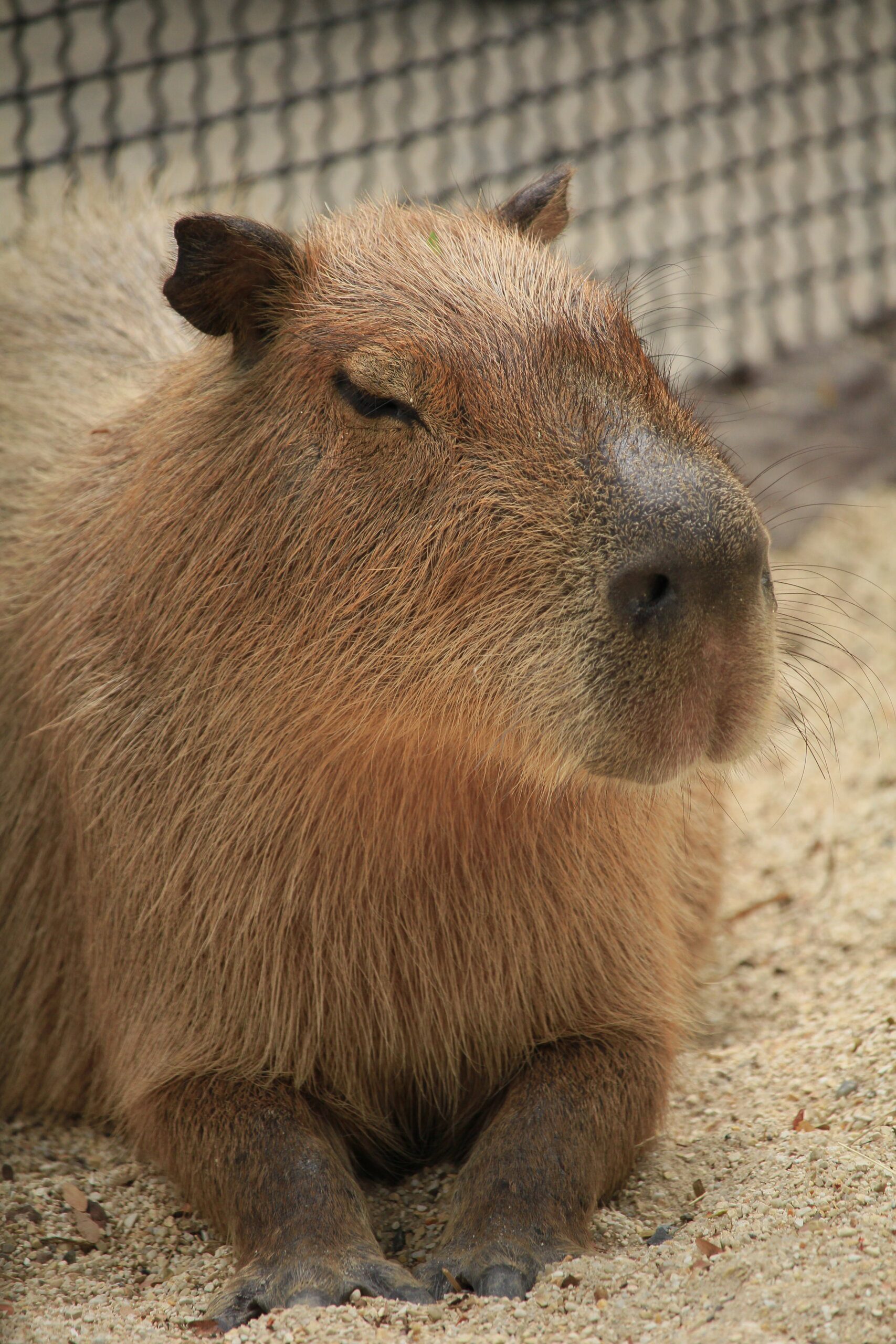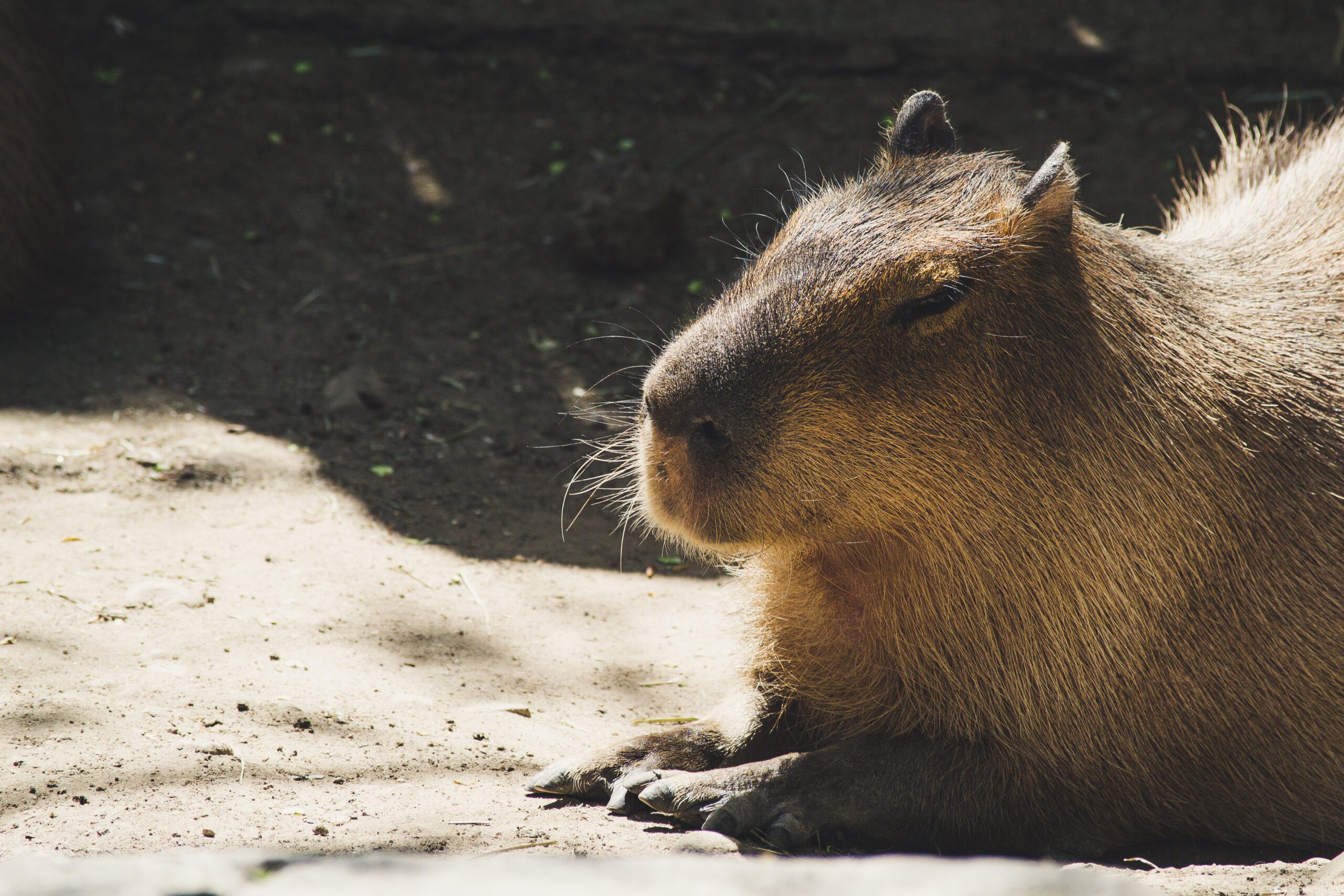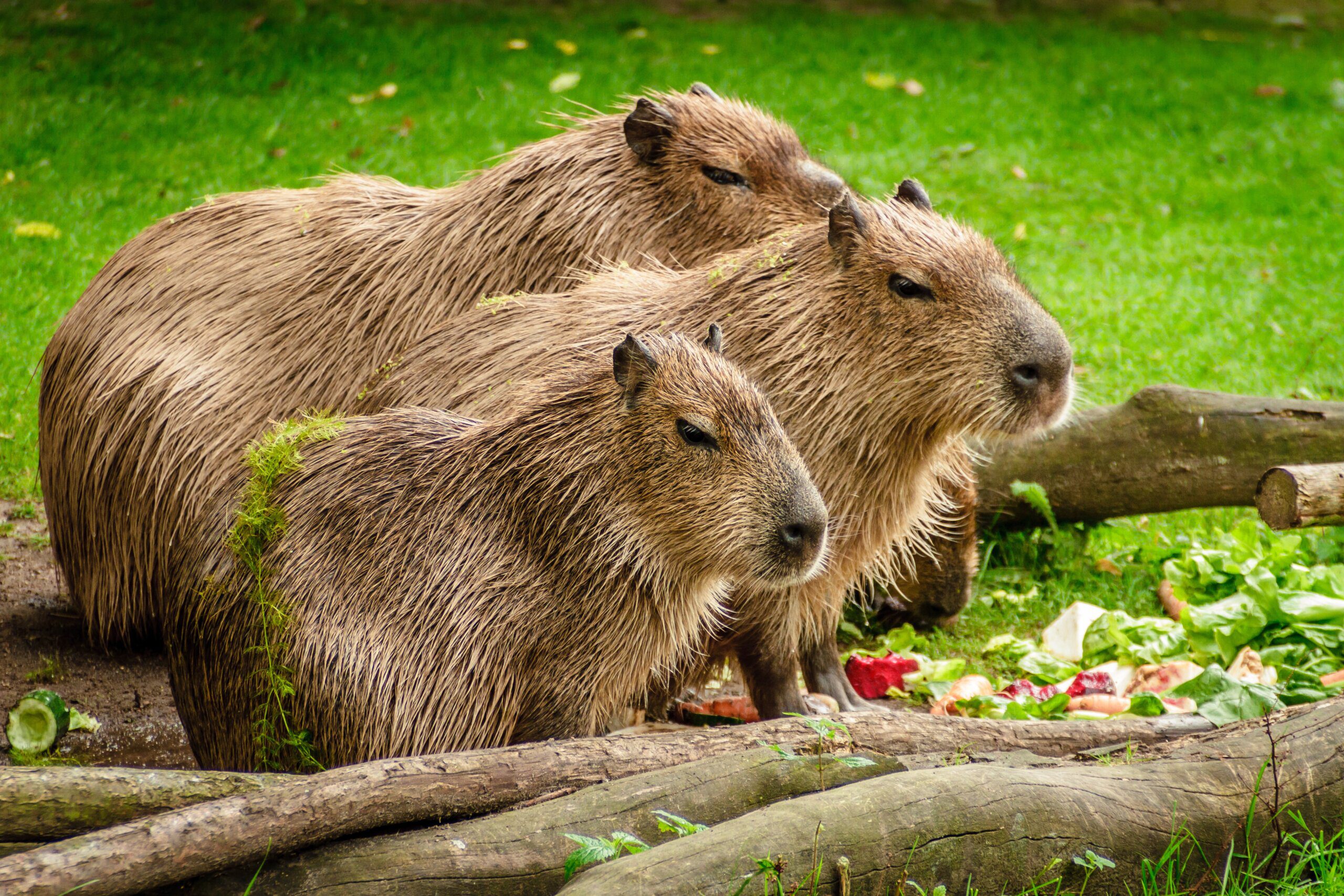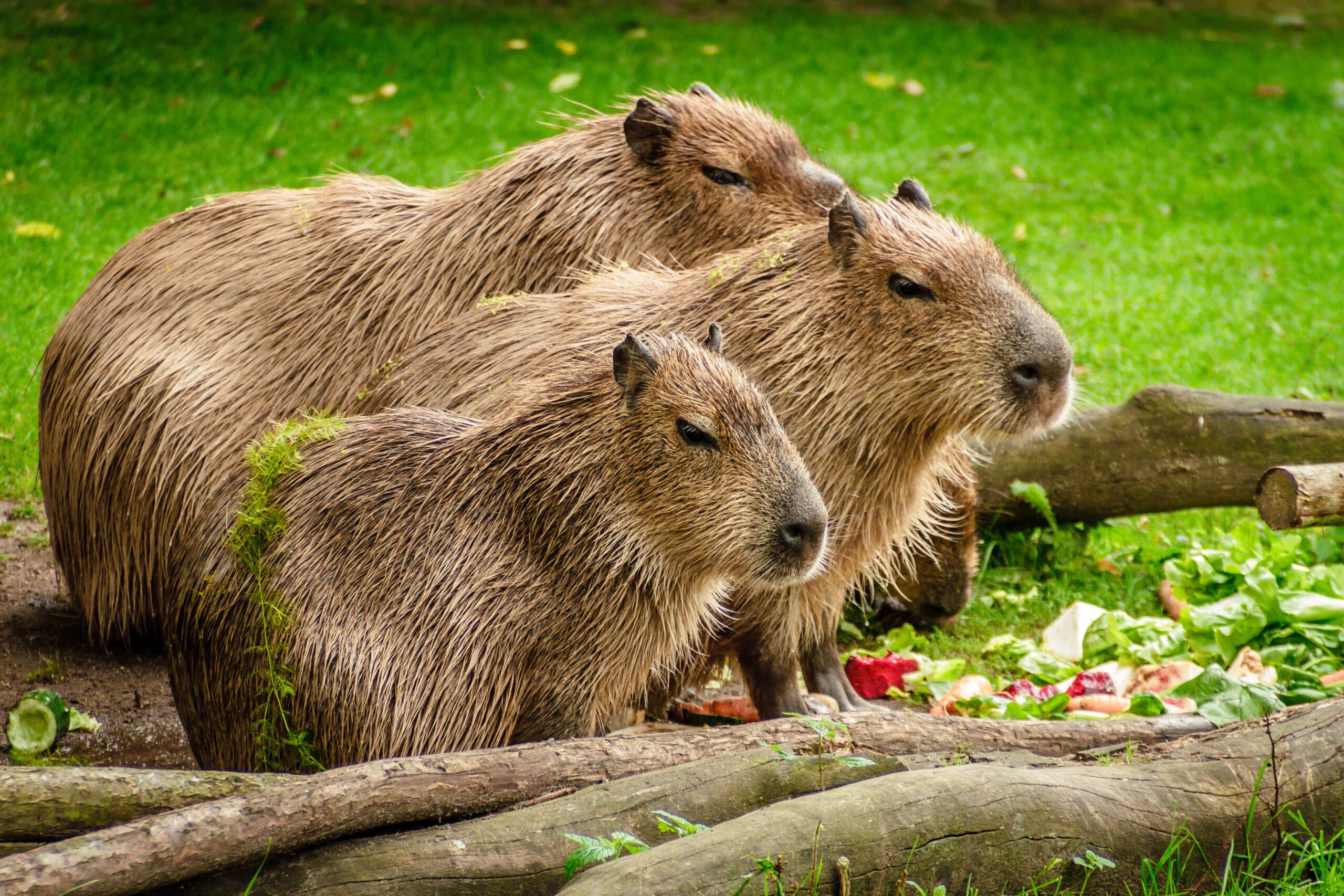So, you’re considering bringing a capybara into your life as a pet? That’s fantastic! Capybaras are incredibly unique creatures that can make wonderful companions if you have the right knowledge and resources to care for them properly. In this article, we’ll explore the essential aspects of capybara care, from their diet and habitat to their social needs and healthcare requirements. By the end, you’ll have a better understanding of what it takes to provide a loving and fulfilling environment for your new capybara friend. Let’s get started!

Preparing for a Capybara Pet
Capybaras are unique and fascinating creatures that can make for interesting and rewarding pets. However, proper preparation is essential to ensure the well-being and happiness of your new furry friend. Before bringing a capybara into your home, there are several important factors to consider. This comprehensive guide will provide you with all the necessary information to be fully prepared for every aspect of capybara ownership, from researching the animal to monitoring its well-being.
Researching Capybaras as Pets
Before delving into capybara ownership, it is crucial to understand the nature and specific needs of these remarkable animals. Capybaras are the largest rodents in the world and originate from South America. They are semi-aquatic and social creatures, known for their friendly and docile nature. Researching their behavior, dietary requirements, and lifespan will help you make an informed decision about whether a capybara is the right pet for you.
Checking Local Laws and Regulations
Before welcoming a capybara into your home, it is essential to ensure that you are compliant with the laws and regulations regarding exotic pet ownership in your local area. Some jurisdictions may prohibit or require permits for keeping capybaras due to their unique characteristics. Contacting your local wildlife or animal control agency will provide you with the necessary information and prevent any legal complications down the line.
Creating the Ideal Environment
To ensure the well-being and happiness of your capybara, it is vital to create a suitable living environment that mimics its natural habitat. Capybaras require both indoor and outdoor spaces, allowing them to indulge in their natural behaviors. Providing them with a spacious enclosure, ample vegetation, and water sources to swim and explore will contribute to their overall well-being.
Finding a Reputable Breeder or Seller
When searching for a capybara, it is crucial to find a reputable breeder or seller who prioritizes the health and welfare of their animals. Conducting thorough research, visiting breeding facilities, and gathering recommendations from trusted sources will help ensure that you acquire a capybara from a trustworthy and responsible source. A reputable breeder or seller will be knowledgeable about the species, provide proper care guidelines, and offer ongoing support throughout your capybara’s life.
Feeding and Nutrition
Understanding and meeting the dietary needs of your capybara is essential for its overall health and happiness. Capybaras have specific nutritional requirements, and offering a balanced diet is crucial to prevent deficiencies and other health issues.
Understanding Capybara’s Dietary Needs
Capybaras are herbivores, primarily consuming grasses, aquatic plants, and certain types of fruits and vegetables. Understanding their natural diet is vital for providing them with appropriate nutrients. Their complex digestive system relies on a high-fiber diet, so offering hay or grass alongside leafy greens and vegetables is essential.
Providing a Balanced Diet
Aim to provide your capybara with a diverse diet that includes a mixture of fresh vegetables, such as lettuce, carrots, and bell peppers. Leafy greens like kale or spinach should also be included in their daily meals. It is crucial to ensure that the food is fresh and free from pesticides or chemicals that could harm your pet. Consulting with a veterinarian or an experienced capybara owner can provide valuable insights into creating a well-rounded diet plan.
Offering Fresh Water and Hydration
Capybaras are semi-aquatic animals and require access to clean and fresh water at all times. They enjoy swimming and soaking to regulate their body temperature and maintain overall well-being. Providing a large water source, such as a shallow pool or pond, will allow your capybara to engage in their natural behaviors while staying hydrated.
Avoiding Harmful or Toxic Foods
While capybaras have specific dietary preferences, it is crucial to avoid feeding them any harmful or toxic foods. Some human foods, such as chocolate, caffeine, and alcohol, can be dangerous and even fatal to capybaras. Additionally, certain fruits and vegetables, such as onion and garlic, should be avoided due to their potential toxicity to these animals. Familiarizing yourself with safe and appropriate food options will ensure the health and safety of your capybara.

Housing and Habitat
Providing a suitable housing and habitat for your capybara is essential to meet its physical and psychological needs. Creating a comfortable and stimulating environment will contribute to your capybara’s overall well-being and enable it to exhibit natural behaviors.
Providing a Spacious Enclosure
Capybaras require a significant amount of space to roam and explore. A spacious enclosure, both indoors and outdoors, will allow them to exercise and engage in their natural behaviors. The enclosure should be large enough for a capybara to run, swim, and socialize comfortably. As a general guideline, a minimum 16-foot by 16-foot outdoor space and a large indoor area with access to water are recommended.
Designing a Suitable Indoor Area
While capybaras thrive in outdoor environments, they also need access to indoor spaces, especially during extreme weather conditions. Designating a specific area in your home or constructing an indoor enclosure with ample space, natural lighting, and proper ventilation will ensure your capybara’s comfort and safety.
Creating an Outdoor Space
Capybaras are extremely social animals and benefit greatly from outdoor environments. Building a secure outdoor space that replicates their natural habitat is essential. This can include a large grassy area, a shallow pool or pond, and various hiding spots or vegetation that provide shade and privacy. Regularly inspecting the outdoor area for potential hazards, such as sharp objects or poisonous plants, will prevent accidents or injuries.
Maintaining Optimal Temperature and Humidity
Capybaras thrive in environments with warm temperatures and high humidity. Ensuring that the indoor and outdoor areas of their habitat offer suitable conditions is crucial for their health. Maintaining a temperature range of 75°F to 85°F (24°C to 29°C) and humidity levels of 60% to 80% will help prevent heatstroke and other temperature-related issues. Monitoring the temperature and humidity levels regularly and making necessary adjustments will promote your capybara’s well-being.
Socialization and Bonding
Capybaras are highly social animals and form strong bonds with their human caregivers and other household pets. Providing ample opportunities for socialization and bonding is vital to their emotional well-being and happiness.
Understanding Capybara Behavior
Before introducing a capybara into your home, it is important to familiarize yourself with their behavior and social dynamics. Capybaras are social animals that thrive in groups, so having more than one capybara is highly recommended. However, if you plan to have a single capybara, it is crucial to spend ample time with them to fulfill their social needs.
Spending Quality Time Together
Investing time in building a strong bond with your capybara is essential for their overall happiness. Engaging in activities such as gentle petting, grooming, and providing treats will help foster trust and strengthen your relationship. Capybaras appreciate physical contact and enjoy being scratched or rubbed in specific areas that they find pleasurable, such as behind the ears or along the back.
Introducing the Capybara to Other Pets
If you have existing pets at home, it is important to introduce them to your capybara gradually and under careful supervision. Capybaras are generally friendly and sociable towards other animals, but it is crucial to monitor their interactions to ensure the safety and well-being of all involved. Introducing them in neutral territory and providing separate areas for each pet initially can help ease the transition.
Preventing Loneliness and Boredom
Capybaras are highly social creatures and can experience loneliness and boredom if not provided with enough mental and social stimulation. As they have a curious nature, providing interaction with environmental enrichment toys and rotating their selection regularly will keep them mentally stimulated. Additionally, spending quality time with your capybara through games, training sessions, and socializing with other capybaras or compatible pets can help prevent feelings of isolation and promote overall well-being.

Grooming and Hygiene
Keeping your capybara clean and well-groomed is crucial for their health and hygiene. Regular grooming practices will contribute to their overall well-being and help in identifying any potential health issues.
Bathing and Cleaning the Capybara
Capybaras are known for their love of water and swimming. Regular bathing is necessary to keep their skin clean and free from dirt and debris. Providing shallow pools or tubs filled with clean water for your capybara to enjoy bathing will help maintain their hygiene. Ensure that the water is replaced regularly to prevent it from becoming dirty or potentially contaminated.
Maintaining Dental Health
Capybaras have continuously growing teeth, and proper dental care is essential for their overall health. Providing them with chew toys, hay, and other fibrous materials will help wear down their teeth naturally. Regular veterinary check-ups will also ensure that any dental issues are promptly addressed and treated if necessary.
Trimming Nails and Managing Claws
Capybaras have sharp nails that can grow quickly and may require regular trimming to prevent overgrowth or discomfort. Consulting with a veterinarian or an experienced professional on the appropriate technique for trimming capybara nails is recommended. Additionally, providing appropriate substrates, such as grass or soil, in their living area can help naturally wear down their nails.
Monitoring Skin and Coat Health
Regularly inspecting your capybara’s skin and coat for any signs of irritation, wounds, or parasites is crucial for catching potential health issues early on. Brushing their fur gently with a soft brush can help remove any dirt or debris and maintain a healthy coat. If you notice any abnormalities, consult with a veterinarian to determine the underlying cause and appropriate treatment.
Exercise and Enrichment
Capybaras are active animals that require regular exercise to maintain their physical and mental well-being. Providing opportunities for exercise and enrichment is essential to promote a healthy and happy lifestyle for your capybara.
Providing Adequate Exercise Opportunities
Capybaras need regular exercise to prevent obesity and maintain their overall health. Offering them ample space to roam, swim, and engage in natural behaviors is crucial. Encouraging their natural instinct to forage through hiding treats or food throughout their living area will also provide mental and physical stimulation. Regular play sessions, walks, or supervised outdoor time will help keep them active and fulfilled.
Offering Enrichment Toys and Activities
To prevent boredom and stimulate their minds, capybaras benefit from interactive toys and activities. Chew toys, puzzle toys, or toys that encourage foraging behaviors can help keep them mentally stimulated. Rotating their toy selection and introducing new toys periodically will prevent habituation and maintain their interest.
Promoting Mental Stimulation
Capybaras are intelligent animals that require mental stimulation to prevent boredom and associated behavioral issues. Engaging in training sessions that incorporate positive reinforcement techniques can provide mental stimulation and strengthen the bond between you and your capybara. Teaching them basic commands, such as sit, stay, or come, will help keep their minds sharp while providing mental engagement.
Encouraging Natural Behaviors
Capybaras have natural behaviors that are essential to their overall well-being. Providing them with opportunities to exhibit these behaviors, such as swimming, grazing, and exploring, is important. Offering them access to natural substrates, such as grass or dirt, in their enclosure will allow them to engage in activities like digging and rolling, fulfilling their natural instincts.
Healthcare and Veterinary Care
Capybaras, like any other pets, require regular veterinary care to ensure their ongoing health and well-being. Finding an exotic animal veterinarian experienced in caring for capybaras is essential for their healthcare needs.
Finding an Exotic Animal Veterinarian
Capybaras have specific healthcare needs that require the expertise of an exotic animal veterinarian. It is crucial to find a veterinarian experienced in treating and caring for these animals. Consulting local veterinary practices or reaching out to capybara owner communities for recommendations can help you find a veterinarian who is well-versed in capybara care.
Scheduling Regular Check-ups and Vaccinations
Routine veterinary check-ups are necessary for monitoring your capybara’s health, addressing any concerns, and ensuring they are up to date on vaccinations. During these visits, the veterinarian will conduct a thorough examination and provide preventive treatments and healthcare advice specific to capybaras.
Understanding Common Capybara Health Issues
Capybaras can be susceptible to certain health issues, including dental problems, skin infections, and parasites. Understanding the common health issues that capybaras may face will enable you to detect and address any potential problems promptly. Regular veterinary check-ups, good hygiene practices, and a nutritious diet will help minimize the risk of these health issues.
Recognizing Signs of Illness or Injury
Capybaras are skilled at hiding signs of illness or injury, making it important for owners to closely observe their behavior and well-being. Being familiar with the signs of illness, such as changes in appetite, behavior, coat condition, or difficulty moving, will allow you to seek veterinary assistance promptly. Regularly monitoring the capybara’s general health and consulting with a veterinarian if any concerns arise will ensure their well-being.
Legal and Ethical Considerations
Before bringing a capybara into your home, it is crucial to understand and comply with the legal and ethical considerations surrounding exotic pet ownership. Responsible capybara ownership involves obtaining the necessary permits and licenses, respecting their welfare and conservation, educating others about responsible ownership, and supporting capybara advocacy groups.
Obtaining the Necessary Permits and Licenses
Many jurisdictions require permits or licenses for owning capybaras as pets due to their exotic status. It is crucial to research and comply with the specific legal requirements in your area to avoid legal issues. This may involve obtaining permits, undergoing inspections, or adhering to specific regulations concerning housing and care standards.
Respecting Capybara Welfare and Conservation
Capybaras are unique wildlife species that deserve respect and humane treatment. As responsible owners, it is essential to prioritize their welfare and provide them with a suitable living environment. Additionally, being mindful of their conservation status and participating in ethical breeding programs, if applicable, can contribute to the preservation of capybara populations.
Educating Others about Responsible Ownership
Sharing your knowledge and experiences as a capybara owner with others can help promote responsible ownership. Educating friends, family, and the larger community about the specific needs and requirements of capybaras can prevent misconceptions and enhance the welfare of these delightful animals. Encouraging others to consider adoption or supporting reputable breeders or rescues can also make a positive impact.
Supporting Capybara Advocacy Groups
Supporting capybara advocacy groups and organizations can contribute towards the well-being and conservation of capybaras. These groups work to protect capybara populations, promote responsible ownership, and provide valuable resources to owners. Donating, volunteering, or participating in their initiatives can help ensure a bright future for capybaras.
Training and Behavioral Management
Training and behavioral management play key roles in ensuring that your capybara understands boundaries, follows basic commands, and exhibits desirable behaviors. Positive reinforcement techniques are the most effective and ethical way to train a capybara.
Establishing Basic Training Commands
Training your capybara to respond to basic commands can greatly enhance your relationship and promote their safety and well-being. Commands such as “come,” “sit,” and “stay” can help manage their behavior and ensure they are cooperative in various situations. Consistency, positive reinforcement, and patience are key to successful training sessions.
Using Positive Reinforcement Techniques
Positive reinforcement techniques, such as rewarding your capybara with treats, praise, or gentle petting, are highly effective and ethical ways to train capybaras. By rewarding desired behaviors, your capybara will associate those behaviors with positive outcomes and be more likely to engage in them willingly.
Addressing Undesirable Behaviors
Capybaras, like any animals, may exhibit undesirable behaviors at times. It is important to address these behaviors calmly and consistently to encourage positive changes. Redirecting their attention, using verbal cues, or implementing time-outs can be effective strategies. Seek professional guidance or consult with experienced capybara owners if you encounter persistent or concerning behavioral issues.
Promoting Trust and Cooperation
Building trust and a cooperative relationship with your capybara is crucial for their well-being and overall obedience. Spend quality time together, engage in gentle handling and petting, and respect their boundaries. Maintaining positive interactions and avoiding punishments will foster trust, ultimately strengthening the bond between you and your capybara.
Monitoring and Assessing Well-being
Ensuring the ongoing well-being of your capybara involves monitoring their health, behavior, and overall quality of life. Actively observing and assessing your capybara’s well-being will allow you to intervene promptly if any concerns arise.
Observing Capybara’s Health and Behavior
Regularly observing your capybara’s health and behavior will enable you to detect any changes or abnormalities. Monitor their eating habits, activity levels, and social interactions to ensure they are functioning normally. Additionally, being aware of subtle changes in their behavior or temperament can provide valuable insights into their well-being.
Documenting Changes and Anomalies
Keeping a record of any changes or anomalies you observe in your capybara will help in assessing their well-being and providing accurate information to the veterinarian if needed. Documenting changes in appetite, weight, behavior, or any signs of illness or injury will assist in identifying potential health issues.
Seeking Professional Help when Needed
If you notice any concerning changes or have any doubts about your capybara’s health or well-being, seeking professional assistance from an experienced veterinarian is crucial. Trained professionals can conduct a thorough examination, provide the necessary treatments, and offer valuable advice tailored to your capybara’s specific needs.
Maintaining a Wellness Log
Keeping a wellness log that includes your capybara’s routine, diet, exercise regimen, and any health-related occurrences will help you track their overall well-being. This log can be beneficial for identifying patterns, tracking any changes, and providing accurate information to the veterinarian. Regularly updating the wellness log will assist in detecting and managing any health issues in a timely manner.
In conclusion, caring for a capybara as a pet requires thorough research, proper preparation, and a commitment to meeting their specific needs. From understanding their behavior and dietary requirements to providing a suitable habitat and maintaining their overall well-being, responsible capybara ownership involves dedication and attention to detail. By following the guidelines outlined in this comprehensive guide, you will be well-equipped to provide a safe, enriching, and loving environment for your capybara pet.



